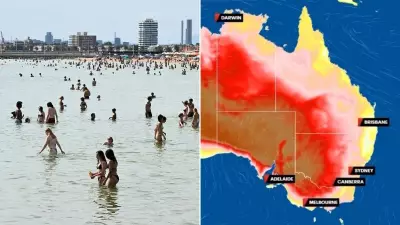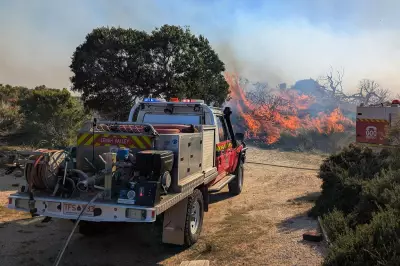
Townsville residents are facing a severe health warning as meteorologists predict temperatures will climb to a scorching 40 degrees Celsius this week. Health authorities have issued urgent advice about recognizing and preventing heat-related illnesses, particularly heatstroke, which can become life-threatening if not treated promptly.
Recognizing the Danger Signs
Medical experts emphasize that understanding the symptoms of heatstroke could mean the difference between life and death during extreme weather events. Heatstroke represents the most serious heat-related illness and occurs when the body can no longer control its temperature.
The warning signs everyone should memorize include:
- Confusion, agitation or slurred speech
- Hot, flushed and dry skin
- Body temperature rising above 40°C
- Rapid breathing and elevated heart rate
- Headache, nausea or vomiting
- Possible loss of consciousness in severe cases
Health authorities stress that heatstroke constitutes a genuine medical emergency. If you suspect someone is experiencing heatstroke, immediately call Triple Zero (000) and begin cooling measures while waiting for assistance.
Prevention Strategies for Extreme Heat
With the mercury expected to hit 40 degrees, prevention becomes the most effective defense against heat-related illnesses. Queensland Health recommends several practical measures to stay safe during the heatwave.
Staying hydrated remains absolutely crucial during extreme temperatures. Drink water regularly throughout the day, even if you don't feel thirsty. Avoid alcoholic, caffeinated and sugary beverages as they can contribute to dehydration.
Timing your outdoor activities carefully can significantly reduce heat exposure. Schedule physical work or exercise during the cooler morning and evening hours, and take regular breaks in air-conditioned or shaded areas if you must be outside during peak heat.
Dressing appropriately for the conditions means wearing lightweight, light-colored and loose-fitting clothing made from natural fabrics like cotton. Don't forget broad-spectrum sunscreen, a wide-brimmed hat and sunglasses when venturing outdoors.
Vulnerable Groups at Higher Risk
Certain members of the community face greater danger during heatwaves and require special attention. Elderly residents, particularly those over 65, young children, pregnant women, and people with pre-existing medical conditions all have increased vulnerability to extreme heat.
Never leave children, elderly individuals or pets in vehicles, even for short periods. Car interiors can reach lethal temperatures within minutes, creating deadly conditions for anyone trapped inside.
Community welfare organizations encourage residents to check on elderly neighbors, relatives living alone, and those with chronic illnesses during the heatwave. A simple daily visit or phone call could prevent a tragedy.
Pet owners should ensure their animals have constant access to fresh water and shaded areas. Walking dogs during cooler times of day and avoiding hot surfaces like asphalt that can burn paw pads is essential for animal safety.
As Townsville braces for the intense heat, being prepared, staying informed and looking out for one another becomes increasingly important. Following these practical safety guidelines can help the community navigate the challenging weather conditions while minimizing health risks.





